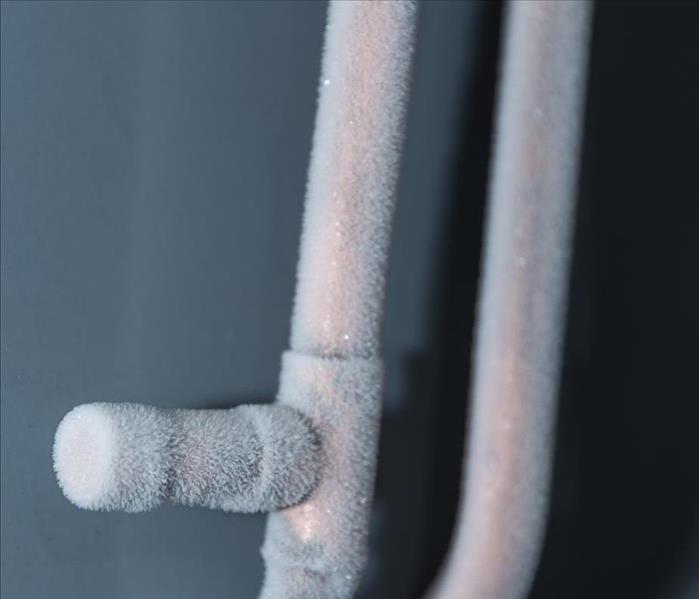Frozen Pipes and Insurance: What You Need to Know About Your Coverage
9/27/2021 (Permalink)
Frozen pipes can lead to sudden and accidental water damage, requiring you to file an insurance claim. Thankfully, in most instances, the average homeowner's insurance policy will cover the damages, as long as the homeowner is a responsible owner and maintains adequate heat to limit such risks. However, while the majority of policies will cover a leak or break from a pipe freeze, not all will. In those instances, mitigation companies in Rocky Mount, NC, it is best to prepare the winter havoc on your plumbing in one of several ways:
- Wrap the pipes
- Maintain consistent heat
- Keep faucets open
Understanding Your Coverage
Before you consider physical tasks to prepare your house for the winter, contact your insurance company to discuss your existing policy. While on the phone, ask your agent about deductibles and coverage limits regarding frozen pipes.
Many insurance agents might be reluctant to discuss the coverage for pipe freezes because the assumption is plumbing is within the interior of the home and maintained at the same temperature as the rest of the house. However, some older homes might have plumbing situated in an exterior wall or you might have an exterior spigot tied into your system. In these instances, it is not uncommon for pipes to be exposed to external temperatures.
Additionally, beyond understand limits and deductibles, you can talk to the agent about liabilities and mitigation. What is your responsibility? Do you have to wrap all of your plumbing or ensure it is heated? The agent should be able to explain some of the specifics of your policy and insurer expectations.
What To Do in the Event of a Pipe Freeze
A freeze does not automatically result in a burst pipe, but it is more likely the longer the pipes remain frozen. If you want to avoid an insurance claim, you will want to thaw your pipes as quickly as possible.
The first thing you should do is open your faucets to relieve some of the pressure in the pipes. If no water is coming out, you will need to apply direct heat to the affected pipes. You can wrap the pipes with heat wrap or you can use a space heater and point it directly at the frozen pipe.
If you are not sure where the freeze is located, look for condensation on the pipes. If that doesn't help, contact a remediation specialist. They will use a thermal imaging camera to locate the problem.
Preventing Freezes
The best way to prevent a freeze is to maintain temperatures throughout your home and wrap exposed pipes. Ensuring all exterior and exposed pipes are wrapped should protect against even the worst freezes, but there is always a chance, especially in frigid climates, that pipes will freeze.
You will want to file an insurance claim if your pipes freeze and break, but it is difficult to say whether you will be covered without knowing your specific policy. If you would like to learn more about your coverage or prevention methods, consider calling your insurance company to discuss your policy, especially as it relates to frozen pipes and breaks.




 24/7 Emergency Service
24/7 Emergency Service
